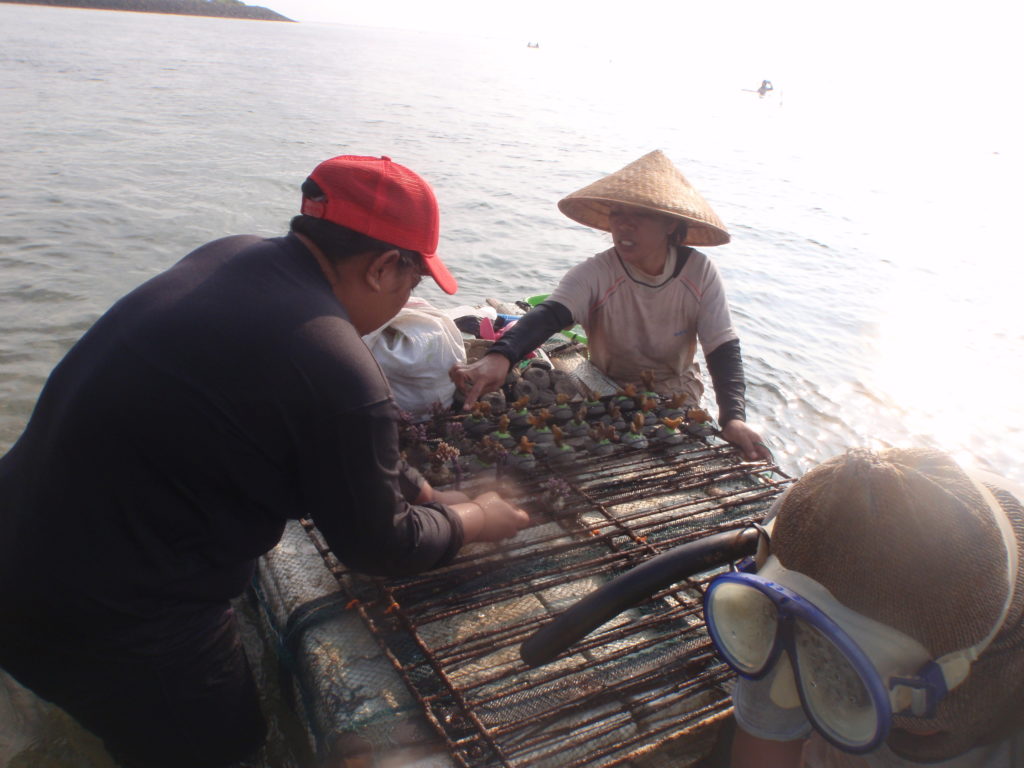The first coral export came from the Mediterranean sea in the bronze age. Archeologists suspect the coral to be used as jewelry and as a form of currency due to its scarcity and was found throughout Europe in various archeological sites. Coral has been used in jewelry making for centuries but the trade of life coral is a rather recent development.
The vast majority of coral reefs are found in oceans near the equator. Even though coral is found in other rather unlikely places like the icy depth of the arctic sea, the largest coral reefs are located in tropical waters of Southeast Asia and Australia. The WWF (World Wildlife Foundation) reports that the modern life coral and ornamental fish export is most originated in what is called the Coral Triangle. A location that encompass Indonesia, the Philippines, Malaysia, Solomon Islands, Timor-Lest, and Papa New Guinea. In past years Fiji had evolved as a active exporter of Invertebrates and cashed in on the global demand. The USA has a few land based coral farming operations but only accounts for about 1 % of global volume.
Global warming and pollution has endangered many reefs. Furthermore, reckless fishing practices with explosives and the use of poisons have further damaged the fragile reefs. The collection of specimen of the ornamental fish trade has often used destructive methods, such as wild harvesting, the use of cyanide and such. Those practices can do long term damage to reefs and make the sensible ecosystems uninhabitable for a lot of species. Together with the effects of man made changes to the environment reefs are dying at alarming rates and many restrictions have put on the international coral trade. Indonesia is the biggest exporter of sustainably farmed coral worldwide and has put considerable efforts forward to provide effective regulations and control mechanisms. The country went to a rough 2 year hiatus to restructure its coral export protocol to ensure that wild harvesting would no longer be a part of the coral trade. Fijii enacted a temporary export ban in 2017 with similar goals in finding a balance between economical goals and environmental concerns. Since the 1980s Indonesia is the largest exporter of ornamental coral worldwide. Its location as an island nation in the Southeast Asian Region with its countless natural coral reefs lends itself to the practice of coral farming. We at the Bali Coral Farm are certainly a small part of the overall picture when it comes to life coral export. Even as our numbers of exported live coral are still relatively small when compared to the industry as a whole, we are happy to report a steady increase of our customer base among the wholesale coral importers in Europe, Asia and America. Because of the complexity of the export procedures and shipping arrangements we do not deliver to ornamental fish retail customers directly. Our focus lies on the professionals who dedicate themselves to import and wholesale of life corals. Let us know, if your company is importing coral and consider purchasing marine invertebrates that are sustainably raised in an ocean based aquaculture operation in Indonesia. We will be happy to supply you with details on actual pricing and shipping procedures.


